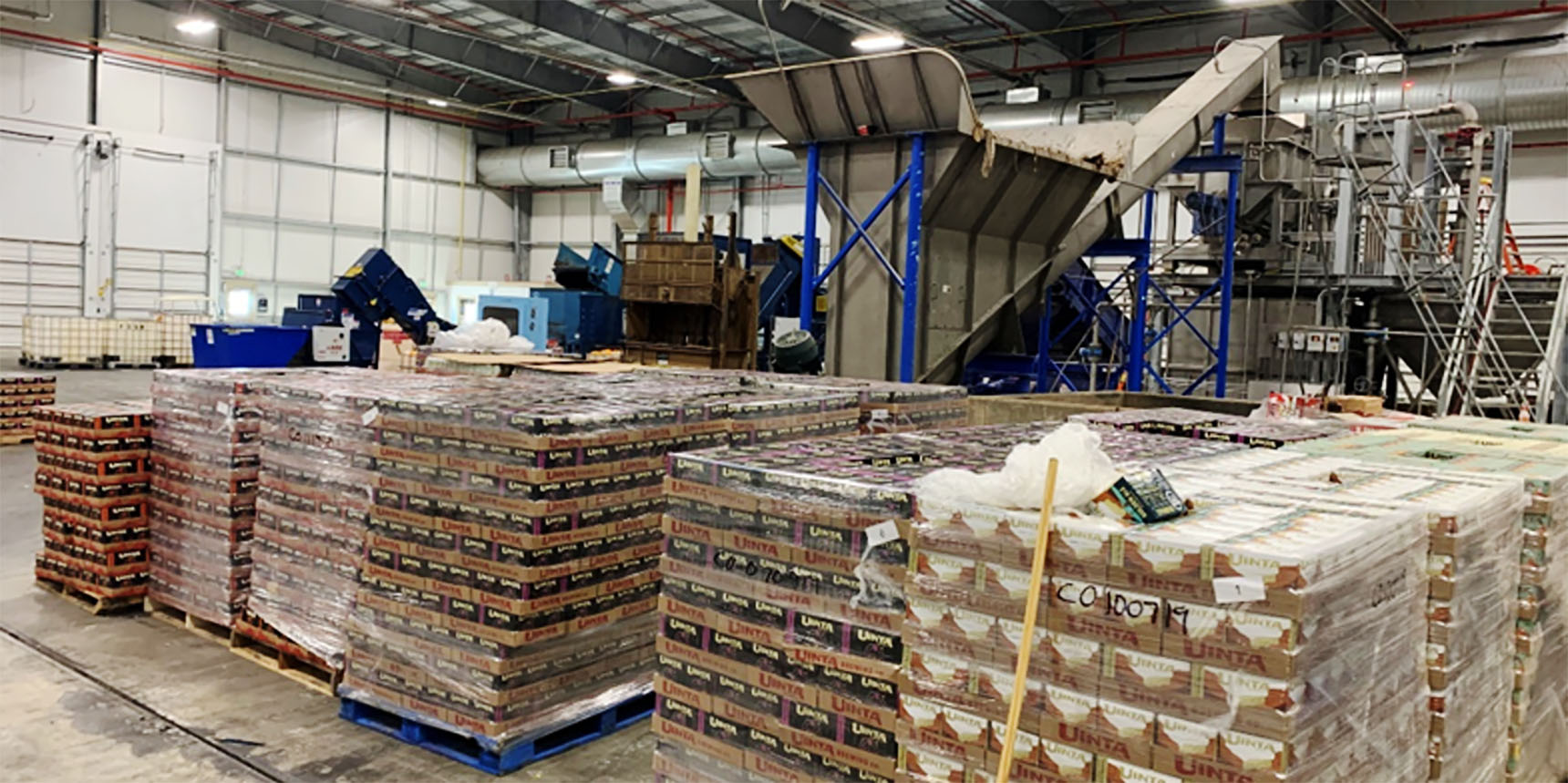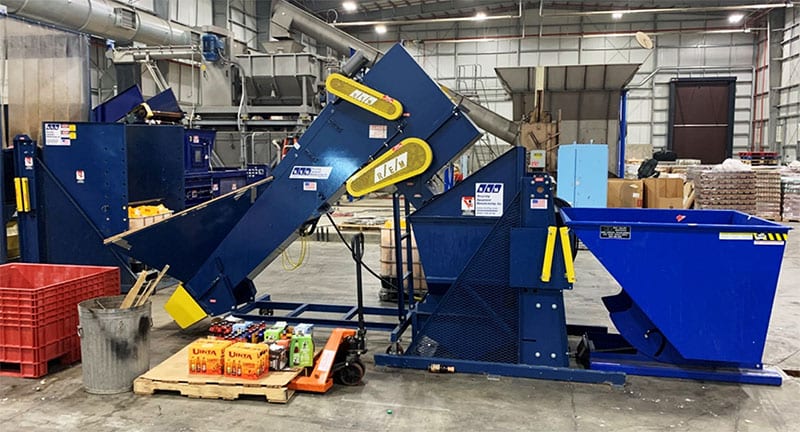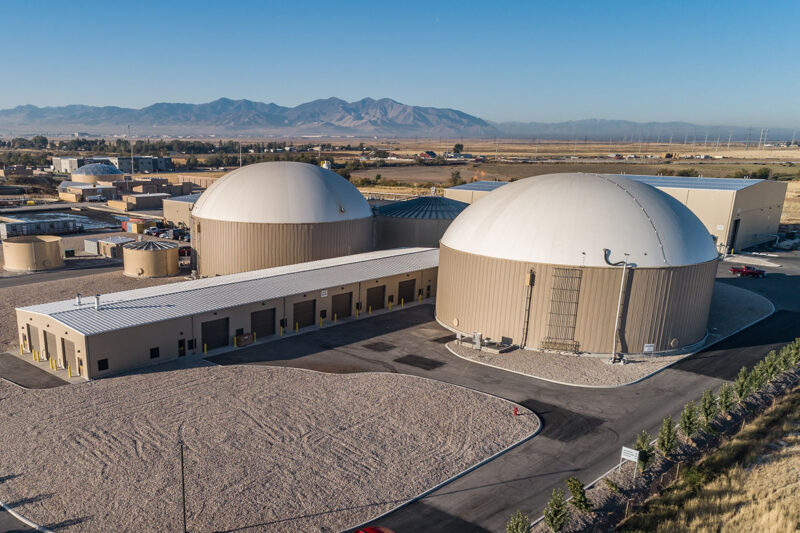
Countless kegs of beer sit untouched as Utah bars, restaurants, and breweries largely remain shut down to dine-in customers. Once taps start flowing again, much of the beer could be destined for the drain.
Beer, after all, is a perishable product and (for the most part) is best enjoyed fresh.
One company, however, is working to convert unconsumed food and drink into renewable natural gas and nutrient-rich fertilizer.
Wasatch Resource Recovery offers a more environmentally friendly and sustainable way to dispose of organic food waste, including beer, than trucking it to a landfill or dumping it down a drain.
As food decomposes in open-air environments, it releases methane, a damaging greenhouse gas, into the atmosphere.
At Wasatch Resource Recovery, on the other hand, machines grind, liquefy, and screen the waste when it arrives at the facility. Organic material is then fed into “anaerobic digesters” where the conversion process takes place. Microorganisms break down the organics to create beneficial gases.
A pair of these massive digesters each holds 1.5 million gallons of material. It takes about a month for the microbes to do their job and “digest” the waste.
Wasatch Resource Recovery not only eliminates the escape of methane, but it also converts it into usable energy. When at full capacity, the facility expects to supply enough natural gas for 15,000 homes.
“We’re able to capture all the methane that would normally be released in a landfill,” Program Coordinator Jeff Whitbeck says. “We’re able to capture it in an enclosed system and send it to the grid.”

Turning Brewery Waste Into Energy
In addition to the many tons of food waste received from Utah restaurants, Wasatch Resource Recovery regularly receives expired or otherwise “off-spec” beer.
The facility saw an uptick in packaged beer last fall as Utah prepared to allow for higher-alcohol beer to be sold in grocery and convenience stores.
In that instance, according to a FOX-13 report, the beer that state liquor stores could not legally continue to sell, headed to Wasatch Resource Recovery to be turned into methane gas.
The liquid proved to be a valuable commodity, mixed in amid solid food waste.
“The big challenge with this kind of facility is to get a diverse range of feedstock,” Whitbeck says. “The more diverse, the better it is for producing gas. The bugs that are in the system like to have a bunch of different kinds of things to eat during the course of the digestion process.”
Breweries also are able to send through spent grain, yeast/hops slurry, and other waste connected to the brewing process.
That said, many breweries already ship spent grain to area farmers. The farmers, in turn, use it to feed their animals.
About half of Utah’s breweries, 15 or so, currently contract with Wasatch Resource Recovery, Whitbeck says, including the biggest: Uinta Brewing and Squatters/Wasatch. The idea is to make the process as streamlined and as easy as possible for large and small breweries to jump onboard.
“It’s challenging to let people know there’s another destination for their waste,” Whitbeck says. ” But breweries we’ve worked with tend to have a strong environmental focus, so that makes it easier.”
Good citizenship aside, Whitbeck also says the costs associated with repurposing waste are often lower than sending it to the landfill.
Addressing an Environmental Need

The North Salt Lake facility is a public-private partnership between the South Davis Sewer District and ALPRO Energy & Water. The plant is the first-of-its-kind in the region, Whitbeck says, and it’s nearing the point where it can deliver pipeline-quality gas directly to the grid via Dominion Energy.
Wasatch Resource Recovery came to be about four years ago, and it “digested” its first organic waste in February 2019. The final step to make the facility fully operational — the gas conditioning — should happen in the coming weeks. That process “cleans” raw gases, making them suitable for commercial and residential use.
The biggest challenge, at least in Whitbeck’s mind, is letting people know there’s another way to dispose of organic food waste. Currently, organic waste comprises 30% of our landfills. Diverting it could create significant environmental and financial benefits.
“The status quo often seems like the easiest thing to do,” Whitbeck says.
The goal is to try to “change their mindset and help them to recognize there’s a different, more responsible way,” he adds.
Breweries interested in learning more are welcome to contact Wasatch Resource Recovery.
Below is a video from Utopia TV that describes the anaerobic digestion processes.



